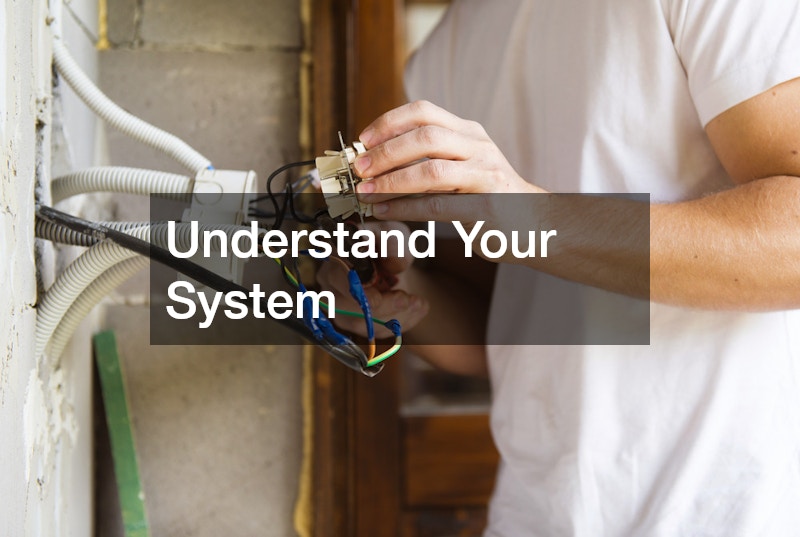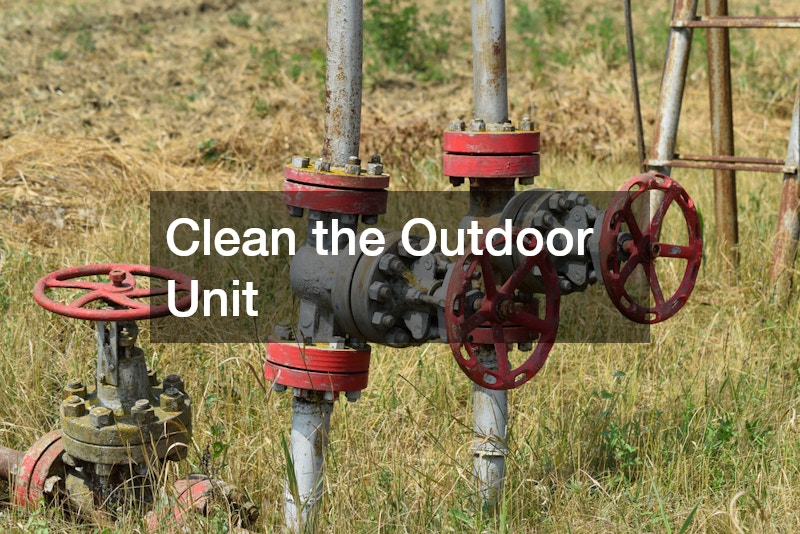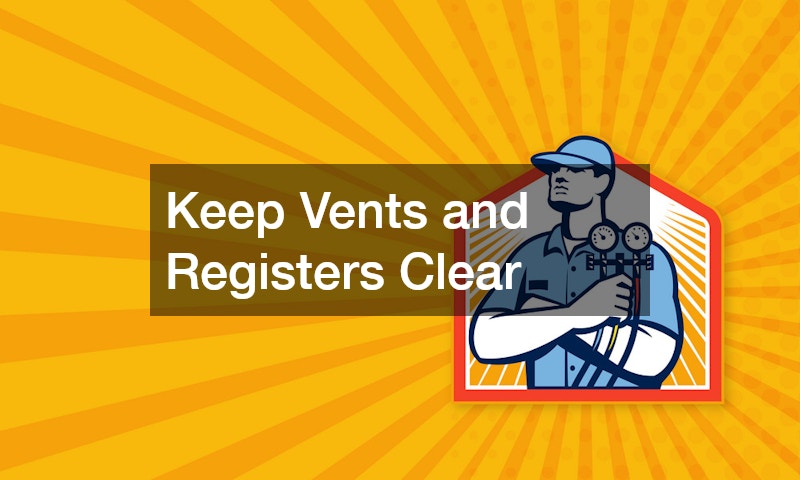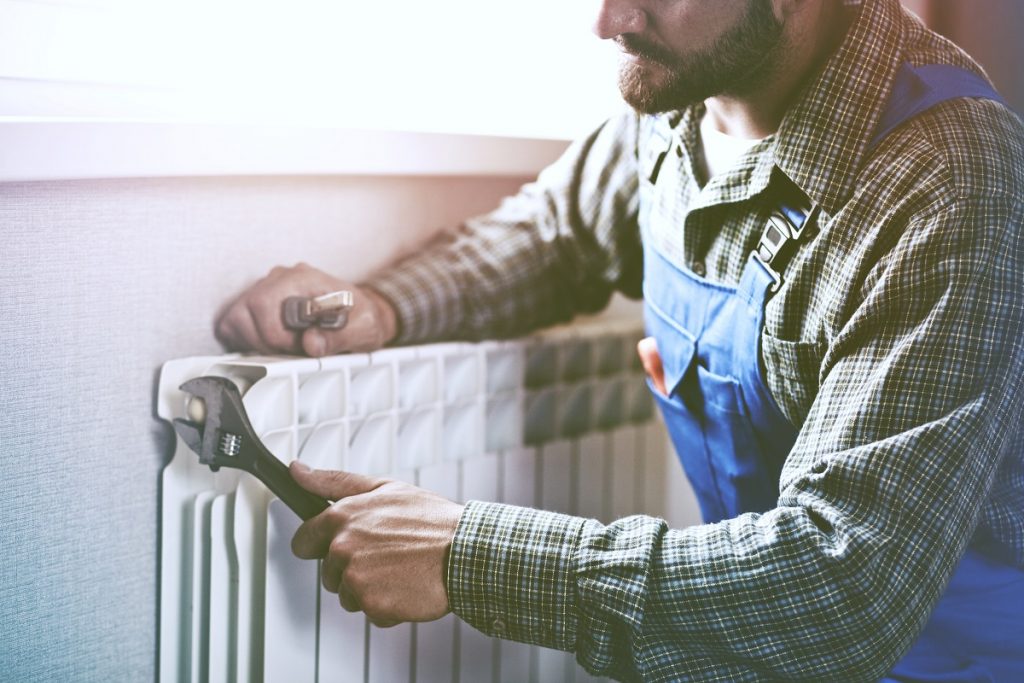Maintaining a comfortable indoor environment is essential, and having a well-functioning HVAC system plays a critical role in achieving this. The efficiency, longevity, and effectiveness of your heating and cooling systems significantly rely on proper maintenance and care. This article delves into various aspects of HV AC maintenance, ensuring optimum performance of your equipment throughout the year. It covers essential tips, including understanding your system, creating a maintenance schedule, changing air filters, and more. Whether you’re dealing with direct heating and air or a comprehensive setup from local HVAC companies, this guide is designed to assist homeowners and businesses alike in preserving their appliances effectively.
Understand Your System

Understanding your heating and air conditioning system is the first step towards efficient maintenance. It involves knowing the type of system, components involved, and how they work together to provide comfort. Awareness of system specifications helps in planning regular heating and cooling service checks, ensuring that every element is looked after appropriately.
Different systems, whether direct heating and air or more complex installations, demand specific maintenance approaches. Familiarizing oneself with the unique requirements of your setup can lead to enhanced system efficiency and prolonged life. It is also helpful for identifying potential problems early, which can then be tackled during scheduled HVAC service appointments rather than leading to significant breakdowns.
HVAC contractors play a crucial role in educating homeowners about their systems. Engaging with professionals during service calls can provide invaluable insights into the inner workings and maintenance needs of your heating and air conditioning setup. This proactive approach ensures that users are well-equipped to handle minor issues themselves, leaving more complex tasks to experts like your local HVAC company.
Create a Maintenance Schedule
Creating a maintenance schedule is vital for keeping your heating and cooling systems in peak condition. Regular checks and operations performed by HVAC contractors help prevent unexpected failures and extend the lifespan of equipment. A well-planned schedule that includes ac maintenance and heating inspections can save time, money, and resources in the long run.
The direct heating and air equipment in your home or business should be inspected at least twice a year, ideally before the heating and cooling seasons begin. It allows for any necessary repairs or optimizations to be done ahead of time, ensuring uninterrupted comfort. Maintenance schedules can vary based on the equipment type, usage intensity, and manufacturer’s recommendations, so consulting HVAC professionals is always advised.
Documenting each service and repair session is an effective way to keep track of your system’s health. This record-keeping not only ensures timely HVAC maintenance but also provides a history that can be useful during conversations with HVAC companies. Such documentation can help expedite both warranty claims and replacement initiatives if required.
Change Air Filters Regularly
Regularly changing your HVAC system’s air filters is crucial for maintaining good air quality and system efficiency. Clogged or dirty filters can restrict airflow, causing the system to work harder and potentially leading to overheating and breakdowns. Direct heating and air units benefit significantly from consistent filter replacements, reducing the stress on system components and improving energy efficiency.
HVAC contractors recommend checking air filters monthly and replacing them every one to three months, depending on the level of dust and allergens present in the environment. High-quality HEPA filters can also be employed for better performance, especially in households with pets or allergy sufferers. Changing filters is a simple yet effective way to enhance both HVAC performance and indoor air quality significantly.
Incorporating filter change reminders into your maintenance schedule ensures that this task is never overlooked. Some modern heating and air systems include alert mechanisms for filter changes, but manual checking remains a reliable method to avoid neglecting this essential task. A system running with clean filters ensures even temperature distribution and reduces the presence of airborne contaminants.
Clean the Outdoor Unit

The outdoor unit of your HVAC system plays a crucial role in heat exchange, and keeping it clean is essential for efficient operation. Dirt, leaves, and debris can accumulate around the unit, obstructing airflow and reducing the unit’s efficiency. Direct heating and air systems rely on optimal heat exchange processes, and a clean outdoor unit ensures the system can operate effectively.
Regular cleaning of the outdoor unit includes clearing the area around it and gently washing fins and coils with a hose to remove dirt and grime. It’s important to turn off the system before performing any cleaning and to refer to the manual for specific cleaning instructions. A well-maintained outdoor unit facilitates smoother heating and cooling service and can prevent potential damage to critical components like compressors and fans.
Many HVAC Service providers offer professional cleaning services that can reach deeper into the unit’s components for thorough maintenance. Scheduling at least one professional clean a year ensures that any hard-to-reach buildup is addressed, enhancing the system’s durability and performance. Engaging HVAC contractors for this task guarantees comprehensive care and attention to detail, leading to better system longevity.
Inspect Ductwork for Leaks
Ductwork is often overlooked in HVAC maintenance yet plays an integral role in distributing heating and air throughout your space. Leaks in ducts can significantly reduce efficiency by allowing conditioned air to escape, necessitating more energy to attain desired temperatures. Consistent inspection of ductwork for leaks is thus a proactive measure against energy waste and heightened utility bills.
A simple visual inspection for noticeable damage, gaps, or poorly connected joints is a good start. Listening for whistling or rustling sounds while your direct heating and air system is running can also help identify potential leaks. Homeowners may opt for affordable DIY sealing solutions with foil tape and mastic sealant, but complex cases often require professional intervention, especially for larger HVAC systems.
Involving HVAC contractors in the inspection process can uncover hidden issues or faults not easily identified by the untrained eye. Knowledgeable HVAC company professionals have the tools and expertise to conduct thorough duct assessments and repairs. This level of attention not only repairs existing leaks but can also reinforce your ductwork to prevent future air loss, ensuring long-term HVAC efficiency.
Schedule Professional Inspections
Regular professional inspections are essential for maintaining the health of your heating and air system. Skilled HVAC company technicians can perform comprehensive checks to identify existing issues and potential problems. These inspections are vital for prolonging system life and ensuring efficient operation throughout its service life, whether it’s a direct heating and air or a more complex setup.
Ideally, you should book inspections at least twice annually, aligning these with the start of heating and cooling service seasons. Inspections can address everything from minor tweaks to critical repairs, helping to maintain energy efficiency and reduce operational costs. During these appointments, technicians will evaluate components such as motors, belts, electrical connections, and safety controls.
Building a relationship with a reliable local HVAC system service provider ensures trusted access to expertise whenever necessary. These professionals can offer personalized advice based on specific system configurations, usage patterns, and operational environments. Regular, detail-oriented expert attention is key to achieving sustained performance and comfort from your heating and air system.
Keep Vents and Registers Clear

Unobstructed vents and registers are crucial for the optimal circulation of air and heat throughout any building. Blocked or partially covered vents can cause imbalanced airflow, leading to uneven temperatures and increased pressure on HVAC components. Ensuring that furniture, drapes, or other obstacles are not covering these outlets is a simple yet effective step in heating and cooling service maintenance.
Regularly inspecting and cleaning registers help remove accumulated dust, dirt, and debris that may restrict airflow. These routine checks should be part of any well-organized HVAC maintenance plan, contributing to better air quality and system efficiency. Additionally, it helps in mitigating the growth of mold and bacteria, enhancing overall indoor environmental quality.
Proper airflow management also involves monitoring air return pathways, ensuring clean and unobstructed returns for efficient system operation. Direct heating and air systems function best when air freely circulates around them, preventing issues associated with airflow resistance. This not only preserves equipment functionality but also aids in maintaining consistent and comfortable indoor temperatures.
Monitor Thermostat Settings
Thermostat settings play a pivotal role in how your heating and air system operates. Properly set and calibrated thermostats optimize energy use and deliver precise temperature control. Direct heating and air systems can greatly benefit from programmable or smart thermostats, which automatically adjust settings based on user preferences and time of day.
Regularly checking that your thermostat is working correctly helps ensure that your HVAC system isn’t overexerting itself. Sudden changes in energy bills can often be traced back to misconfigured thermostats, and deliberate monitoring and adjustments can counteract this. Calibration should be checked annually by HVAC company professionals to ensure ongoing proficiency and energy savings.
Smart thermostats, available through many local HVAC companies, offer advanced features that take efficiency to new heights. These devices learn user behaviors over time and adjust HVAC functions accordingly. This not only optimizes energy use but also enhances comfort by delivering precise temperature maintenance.
Maintain Proper Insulation
Adequate insulation in your home or business is vital to retain the benefits provided by efficient heating and air systems. Insulation helps keep warm air in during winter and cool air in during summer, reducing the demand on HVAC systems. This can lessen the workload on direct heating and air units, translating to lesser wear and tear over time.
Inspecting and upgrading insulation in attics, walls, and flooring should be part of your comprehensive HVAC maintenance plan. Proper insulation is a cost-effective approach to minimizing energy leaks and achieving stable indoor climates. Homeowners often overlook the importance of quality insulation, but addressing this aspect enhances system efficiency substantially.
Local HVAC system specialists can provide assessments to determine if additional insulation measures are necessary. Such evaluations ensure your heating and air units are not overworking, thereby preserving energy and extending equipment lifespan. Insulation measures are long-term investments into the comfort and energy efficiency of any building.
Understand Seasonal Adjustments
Seasonal adjustments in HVAC maintenance are key to maximizing system efficiency. As weather changes, system settings should be recalibrated to maintain comfort without overburdening the equipment. Spring and fall are ideal periods for revisiting your local HVAC companies to tweak settings and check equipment readiness ahead of extreme weather conditions.
During spring, HVAC systems should be checked for cooling efficiency, ensuring that systems are prepared for higher temperatures. Likewise, pre-winter inspections ensure optimal heating capacity and uncover any issues that might arise in colder months. Direct heating and air systems can benefit from these biannual transitions, helping them maintain peak performance throughout fluctuating seasons.
Professional advice is invaluable for these adjustments, as HVAC contractors can offer insights tailored to specific climates and system types. Their expertise enables your system to be prepared for both intended function and unexpected weather patterns, preserving comfort and operational stability in all settings. Such proactive maintenance can avert emergency repairs and associated discomforts through the seasonal transitions.
Address Unusual Noises or Smells

Unusual noises or odors emanating from your HVAC system are often indicative of underlying issues. Squealing, grinding, or banging sounds can signal mechanical failures that need immediate attention. Such noises should not be dismissed, as timely interventions prevent minor issues from escalating into costly repairs or HVAC replacement.
Strange smells, such as mustiness, burning, or chemical odors, can also denote problems within the system. They may indicate issues such as mold growth, overheating components, or refrigerant leaks, all of which require prompt investigation. Direct heating and air systems might emit different signals based on configuration, but unusual sensory cues are consistent red flags necessitating professional examination.
Engaging HVAC Service experts upon noticing any such irregularities ensures safety and continued performance. Experienced technicians can accurately diagnose and rectify sources of noises and smells, restoring normal function. Regular attention to these sensory cues helps maintain a healthy, energy-efficient, and safe heating and air environment.
Effective HVAC maintenance is crucial for ensuring that your direct heating and air systems perform optimally across all seasons. By understanding the specifics of your HVAC setup, changing air filters, keeping components clean, and scheduling regular inspections, you can prevent many common system issues. It also helps in maintaining balanced heating and cooling service operations, reducing energy costs, and extending the system’s life. By incorporating these practices, homeowners and businesses alike can achieve greater efficiency, comfort, and reliability from their HVAC systems. These efforts exemplify a holistic approach to heating and cooling installation and care, preserving the functionality and satisfaction direct heating and air systems are designed to provide.

